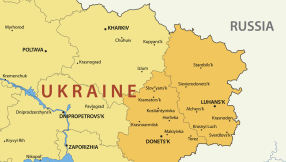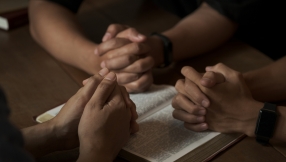Signs of the anti-Semitism, xenophobia and intolerance that overshadowed Europe in the lead-up to the Second World War are "resurfacing", a UN summit of religious leaders has heard.
Adama Dieng, UN special adviser on the prevention of genocide, issued the warning at the Second Global Summit on Religion, Peace and Security held in Geneva last week.
"Signs of the '30s are resurfacing," Dieng, a lawyer from Senegal, told the summit.
"We are witnessing anti-Semitism rising. We see anti-Muslim hatred. We are seeing the persecution of Christians [...] xenophobia and incitement.
"Unless we are blind or of bad faith, we should admit that it's time to stand up, it is time to speak out."
He said that religion was not the problem but rather people "simply manipulating religion" to commit crimes.
Syrian Islamic scholar Shaykh Muhammad Al-Yaqoubi said that religion was being "hijacked" to achieve dubious political aims.
"Religion is a source of peace. Anything that contradicts this is not a part of religion," he said.
"Our job as religious leaders is to stop those hijacking religion," he said, adding, "There is no feud between Islam and Judaism."
Rabbi Michael Melchior spoke to delegates about a religious coalition for peace that is working in the Middle East with people who have been radicalised or convicted on terrorism charges.
He said the coalition was reaching out to them because they "are the ones we need to convince".
"To be with nice people is easy," he said. "We need to work with all groups to empower each other."
Rudelmar Bueno de Faria, ACT Alliance general secretary, told delegates that "balanced" views acknowledging the "multi-causal nature" of poverty, conflict, exclusion, discrimination and hate speech were being challenged by "simplistic and polarised fundamentalist narratives".
He said it was the job of religious leaders to give moral direction to society.
"Religious leaders must act as a moral compass and welcome those who want to protect the most vulnerable against the regression of their fundamental human rights," he said.













